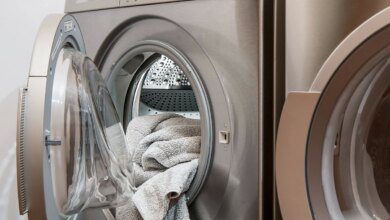
How and how often should you wipe off dust?
Do you remember the last time you dusted your cabinets, window sills or baseboards? Although it happens sometimes, dusting certain corners of the house is not part of your weekly routine. However, how often should you dust?
House dust consists of several components: skin, soil, pet hair, microplastics, dirt. Australian Professor Mark Patrick Taylor from Macquarie University has discovered that the dust is a mixture of potentially harmful elements such as trace metals and perfluorinated chemicals. Hence the question: how dangerous is dust?
Risk is related to the amount of harmful elements we are exposed to and the length of time. Young children are at greater risk because they like to touch things and put their fingers in their mouth. The risk is asthma and allergy symptoms, so we must manage it diligently, but within reason.
How do you know if you are dusting or not?
There is no need to fanatically clean every corner of the house. Science has something called hygiene theory, which suggests that childhood exposure to germs and certain infections contributes to the development of the immune system. For example, people who grew up on farms or around animals have stronger immune systems and are less likely to experience allergies throughout their lives. This doesn't mean you're leaving two fingers dusting all over your surfaces, just that you're maintaining a healthy balance. Excessive use of chemicals can also be harmful to health, so we must strive for balance.
You may also be interested in: How to make your own cleaning products.
The frequency of cleaning depends on each home.
A household of four people and two dogs living on a main road in town is likely to need cleaning more often than a country house with two occupants and no pets. We need to observe how quickly dust accumulates to understand how often the house needs cleaning.
Professor Taylor believes vacuuming at least once a week will reduce dust in more hidden areas. Since chemical cleaning products can aggravate health problems such as asthma, you may want to consider using natural alternatives such as lemon, baking soda, and vinegar.
When wiping off dust, it is recommended to use wet wipes to collect it rather than spread it around.
Tip
People with asthma or dust allergies should avoid cleaning dusty areas and have someone else do the cleaning or wear a dust mask.















